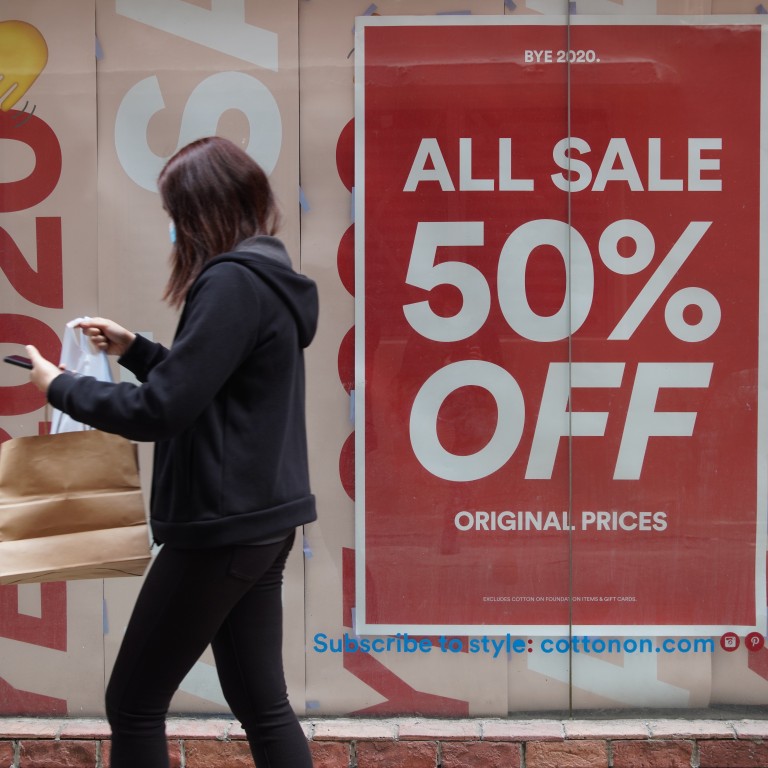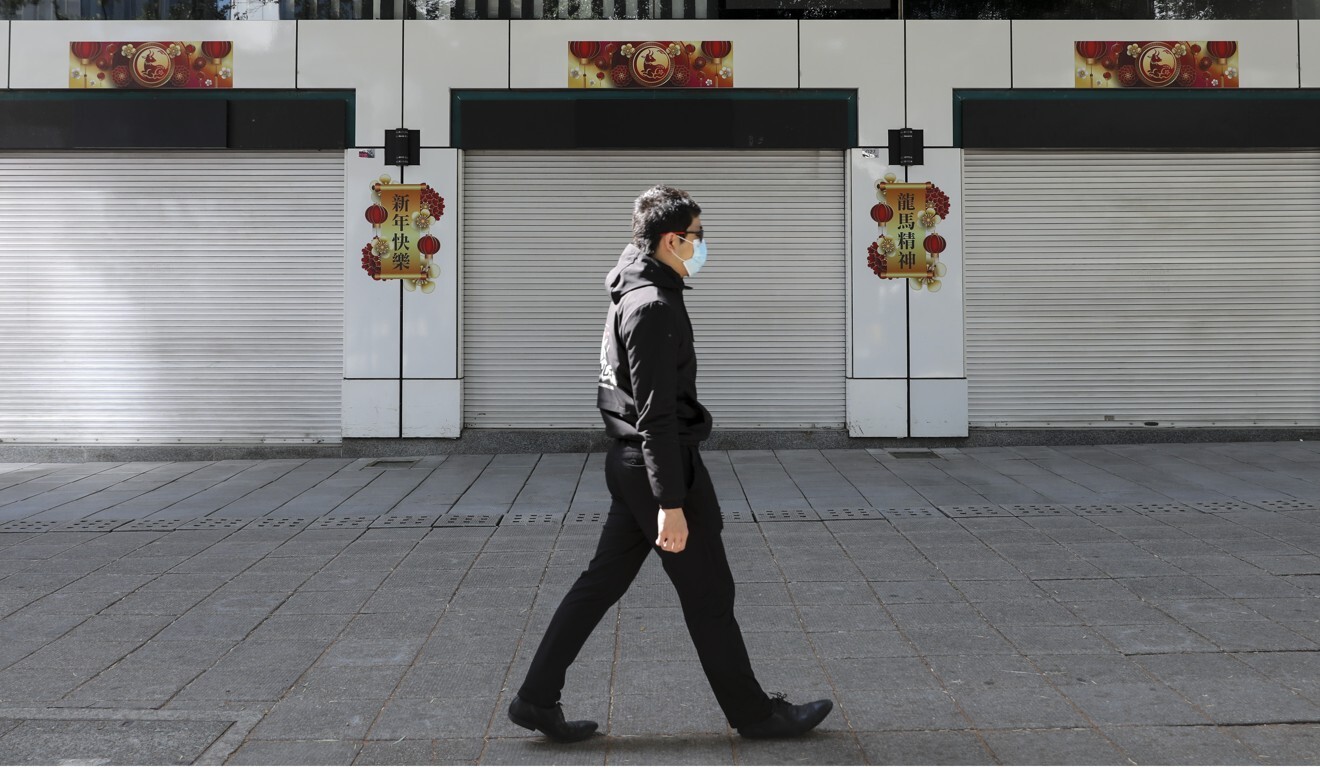
Hong Kong retail sales plunge by record 24.3 per cent amid pandemic in 2020, marking worst performance since records began
- Consumption dropped by 13.2 per cent to HK$31.4 billion in December, marking the 23rd consecutive month of contraction
- Sales of jewellery, watches and clocks and other high-value gifts declined the most at 40.8 per cent
Provisional figures released by the Census and Statistics Department on Tuesday showed the worst performance for the sector since records began in 2004, and a much bigger decline than the previous record slump of 11.1 per cent for 2019.
For 2020 as a whole, total retail sales came in at HK$326.5 billion (US$42.11 billion), a 24.3 per cent drop in value and 25.5 per cent decline in volume compared with the year before.
A government spokesman said retail sales in December worsened amid the fourth wave of infections which triggered a series of social-distancing rules. The business environment for the retail sector would remain challenging in the near term given the lack of inbound tourism and the ongoing health crisis, he warned.
Hong Kong retail sector takes a battering as sales plunge 11.1 per cent
Sales were hammered over the Christmas period, plunging 13.2 per cent year on year in December, worsening from the 4.1 per cent drop recorded in November.
Consumption fell to HK$31.4 billion in December, marking the 23rd consecutive month of contraction.
The retail and wholesale sectors accounted for 3.4 per cent of Hong Kong’s gross domestic product (GDP) in 2019, according to government figures. Mainland Chinese shoppers were responsible for the bulk of big-ticket purchases of luxury goods over the past decade.
We can’t really expect a rebound on anything, because there is no international travel yet
The city remains in a near-lockdown as all but three checkpoints – the Hong Kong-Zhuhai-Macau Bridge, Shenzhen Bay Port and the airport – have been closed for nearly a year since last February, with no signs of normal travel resuming soon.
Amid coronavirus restrictions, visitor arrivals to Hong Kong plummeted nearly 94 per cent year on year to just 3.57 million, a 36-year low, according to provisional data from the Tourism Board.
With the dearth of tourists, shopping malls and retail stores had to rely on local consumption to stay afloat for most of the year.
By category, sales of jewellery, watches and clocks and other high-value gifts declined the most at 40.8 per cent.

The Hong Kong Retail Management Association said businesses across the city had a pessimistic outlook for 2021.
Among 3,600 retail outlets polled by the association between January 25 and February 1, 58 per cent indicated they would shut down stores in the first quarter of 2021. More than half of those polled also said they would continue to reduce their outlets in the second quarter as well.
The end of the government’s HK$81 billion wage subsidy initiative – the Employment Support Scheme – in November meant retail workers were again facing job losses and consumers had to cut back on spending, denting Christmas and year-end sales.
Association chairwoman Annie Tse Yau On-yee said many hard-hit retail businesses had complained about a lack of help from the government to get through the fourth quarter of last year and the first quarter of 2021, on top of receiving few rental discounts from landlords.
She said there was little optimism over retail sales for the first few months of 2021 “as long as Covid-19 was bothering Hong Kong”.
“There are a number of uncertainties, so it’s difficult to predict how bad the situation could be,” Tse said, adding the sales slump could stabilise at a low base throughout the year.
She said categories such as groceries, household appliances and home furniture could record relatively positive growth compared with other hard-hit segments such as luxury or apparel sales.
Iris Pang, Greater China economist at ING Bank, said retail sales would continue to hover at levels of around 20 per cent lower throughout the first half until there was significant progress on vaccinations and the resumption of travel.
“We can’t really expect a rebound on anything, because there is no international travel yet,” Pang said. “We can only rely on the limited rebound of domestic spending.”
Pang said month-on-month fluctuations and quarter-over-quarter comparisons would be more meaningful indicators to determine any improvements in retail sales, as figures had fallen significantly since the arrival of the pandemic last year.
Meanwhile, Andy Kwan Cheuk-chiu, director of ACE Centre for Business and Economic Research, said the drastic decline in retail sales reflected that consumer sentiment had already hit rock bottom in 2020 and might recover by the second quarter of this year.

